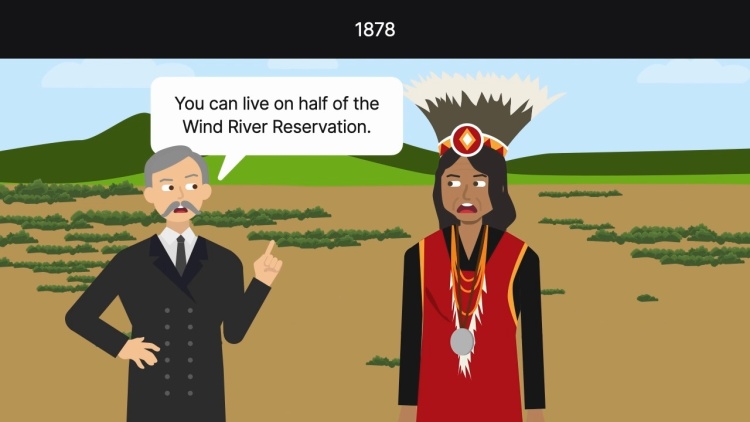United States v. Shoshone Tribe
United States Supreme Court
304 U.S. 111, 58 S.Ct. 794, 82 L.Ed. 1213 (1938)
- Written by Lauren Groth, JD
Facts
The Shoshone Tribe (plaintiffs) was granted a reservation by the United States (defendant) under an 1863 federal treaty. Pursuant to the treaty, the reservation land was to be set apart for the Shoshone Indian’s undisturbed and sole use. Additionally, no one was to be permitted to settle upon or reside on this land. In 1878, the United States escorted the Northern Arapahoe Indian tribe onto the Shoshone reservation and left them there. Later, the Tribe and the Northern Arapahoe Indians were treated as tenants in common on the reservation land. The Shoshone Tribe eventually sued the United States to recover the fair value of the land that was taken from it when it was forced to share the reservation with the Northern Arapahoe. The United States Court of Claims determined that the Shoshone Tribe was entitled to just compensation for the land and awarded it the amount of $1,581,889.50. The United States did not object to the conclusion that just compensation was owed, but argued to the United States Supreme Court that the value assigned to that compensation by the court of claims should not have included the value of the mineral and timber resources on reservation land, because those were owned by the United States. The U.S. Supreme Court granted certiorari.
Rule of Law
Issue
Holding and Reasoning (Butler, J.)
What to do next…
Here's why 907,000 law students have relied on our case briefs:
- Written by law professors and practitioners, not other law students. 47,100 briefs, keyed to 996 casebooks. Top-notch customer support.
- The right amount of information, includes the facts, issues, rule of law, holding and reasoning, and any concurrences and dissents.
- Access in your classes, works on your mobile and tablet. Massive library of related video lessons and high quality multiple-choice questions.
- Easy to use, uniform format for every case brief. Written in plain English, not in legalese. Our briefs summarize and simplify; they don’t just repeat the court’s language.





